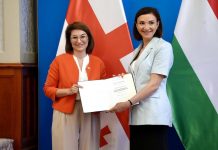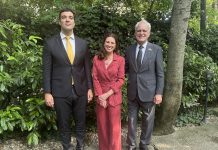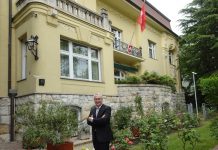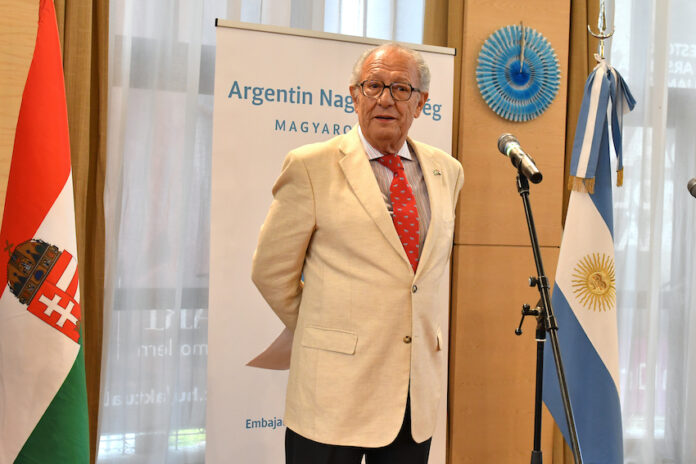25 de mayo: ¡Feliz Día de la Patria!
Edited by Anna Popper
The National Day of Argentina, dedicated to the May Revolution, is celebrated on 25th May every year. The political events between 18-25 May 1810 launched the War of Independence and greatly contributed to reach Argentina’s freedom from Spain after more than two hundred years, creating a nation that did not exist until then. It was created with the joint efforts, traditions and illusions brought by millions of people who immigrated to the new country in Latin America from all over the world, including Europe, and many of them were Hungarians.

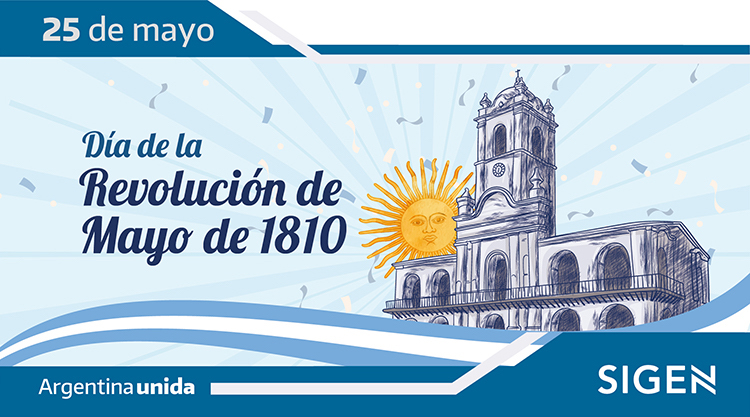
The name Argentina refers to silver, as the early Spanish explorers came to the country to make a fortune from this precious metal. Although silver was never found in large quantities in Argentina, the name – in the Italian version – remained. The 1826 constitution included the first use of the name “Argentine Republic” in legal documents.
On the occasion of the National Day, the Embassy of Argentina hosted a diplomatic reception at the MOM Cultural Centre in Budapest, attended by representatives of the Hungarian political, social, cultural life and business circles, members of the diplomatic corps and Argentine nationals.
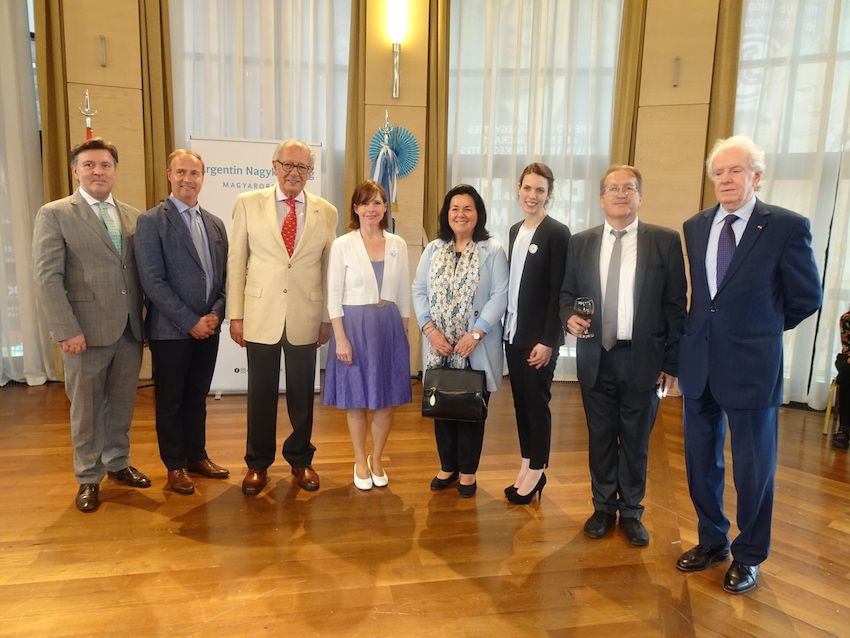


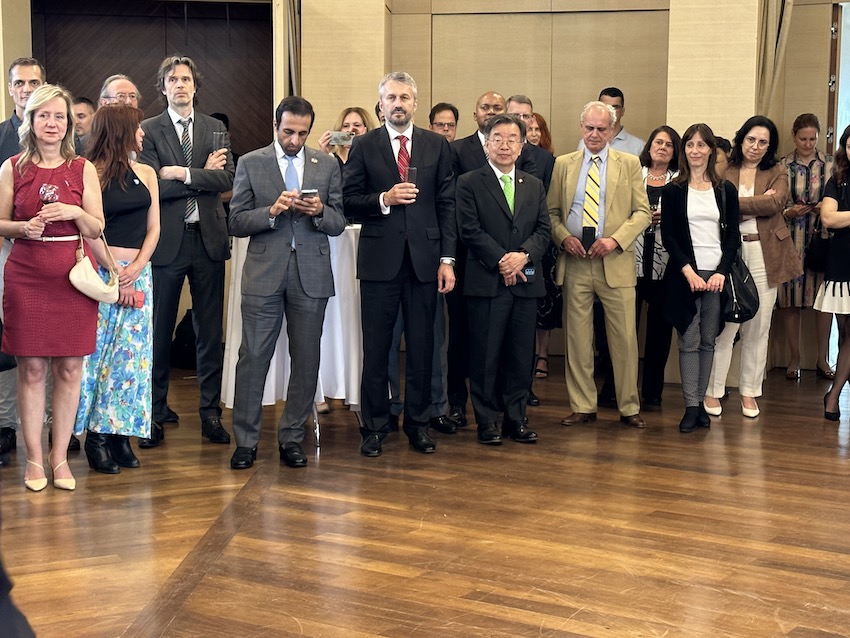

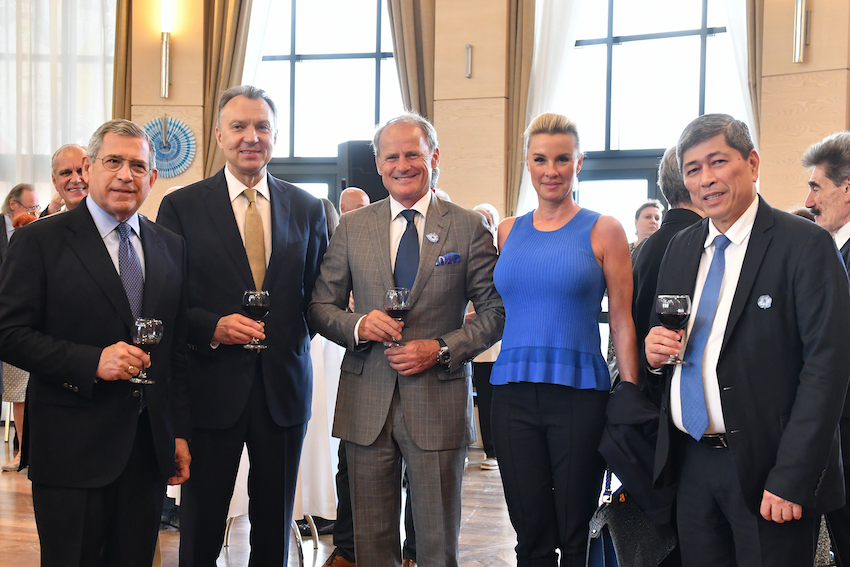

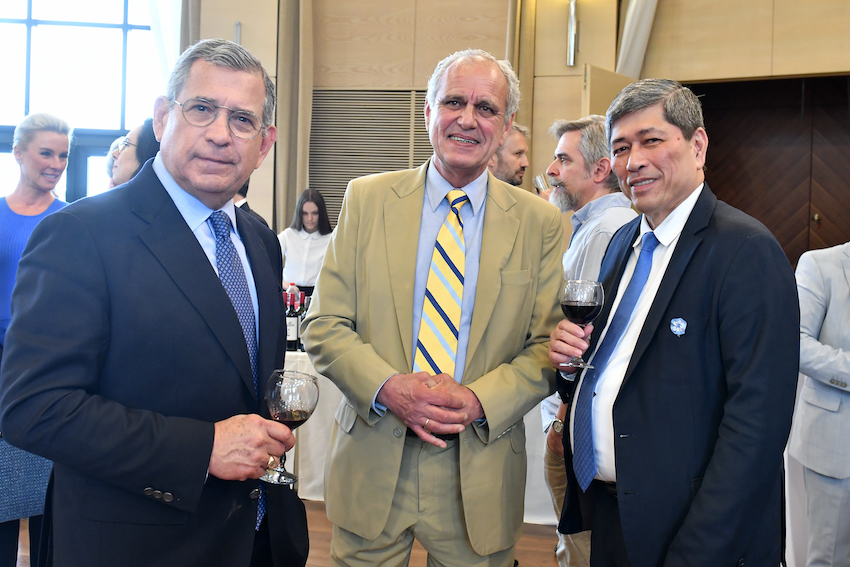
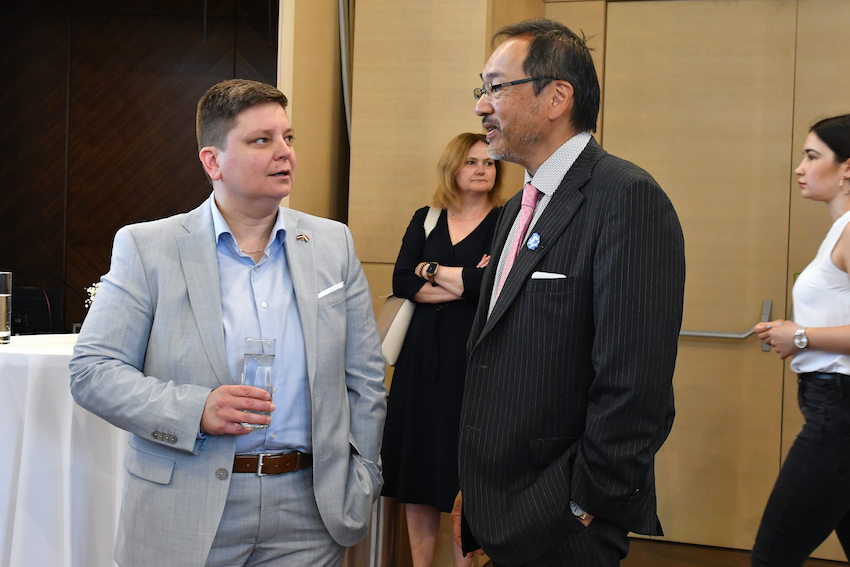
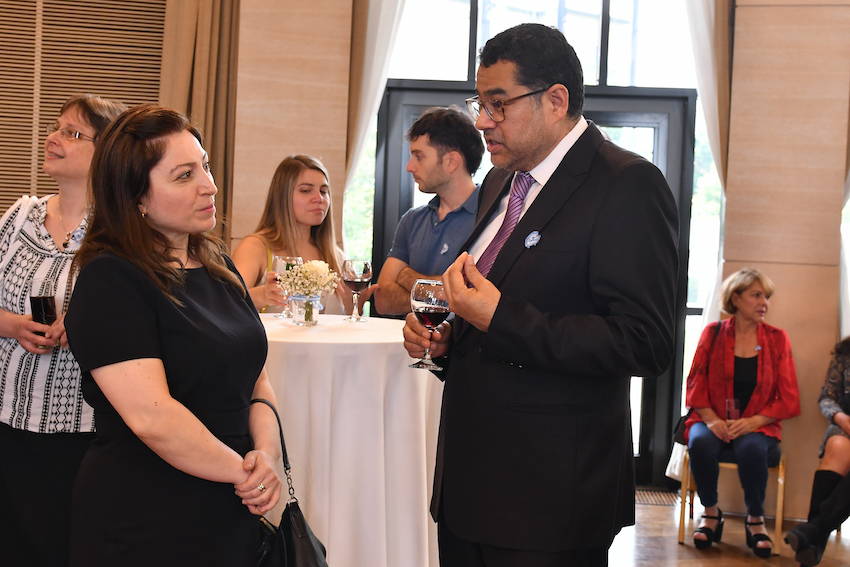
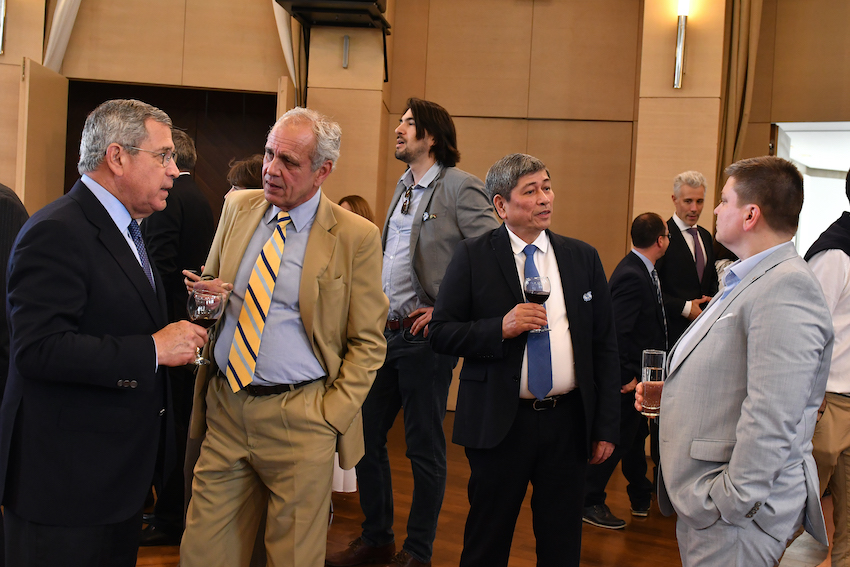
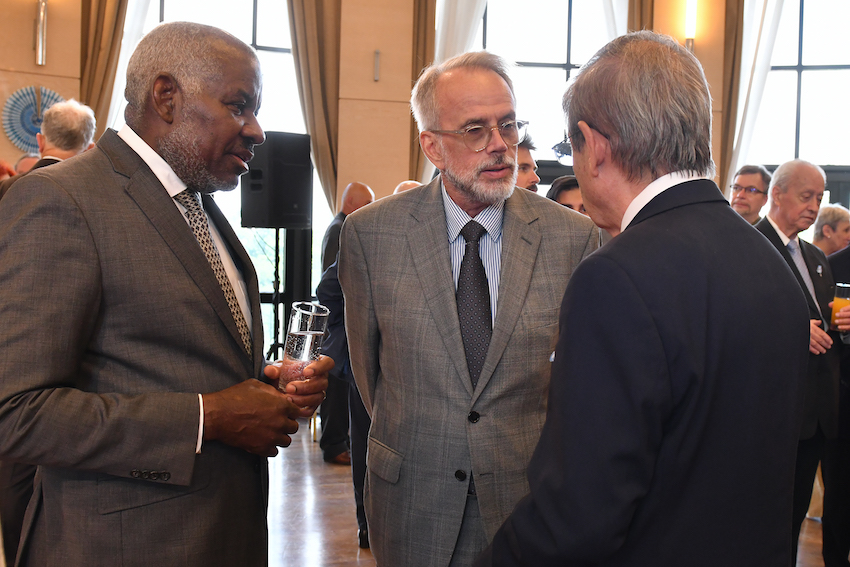
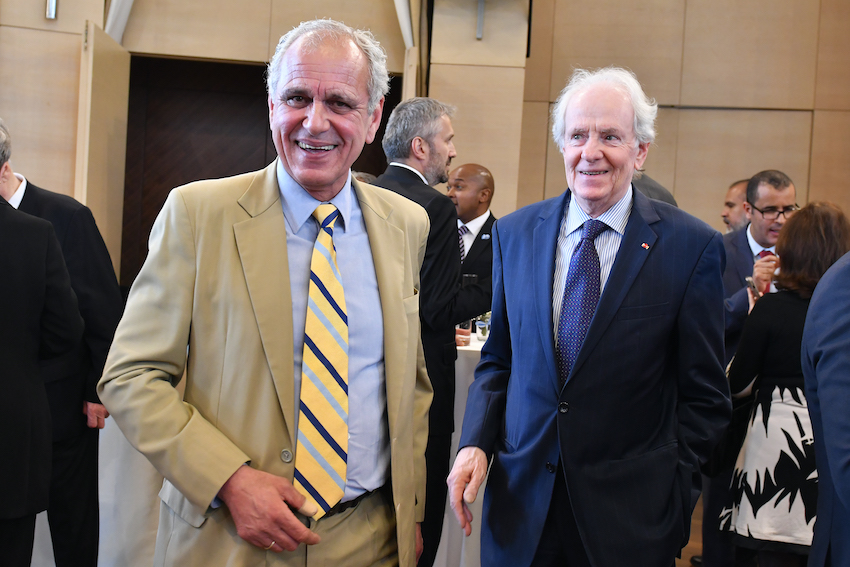
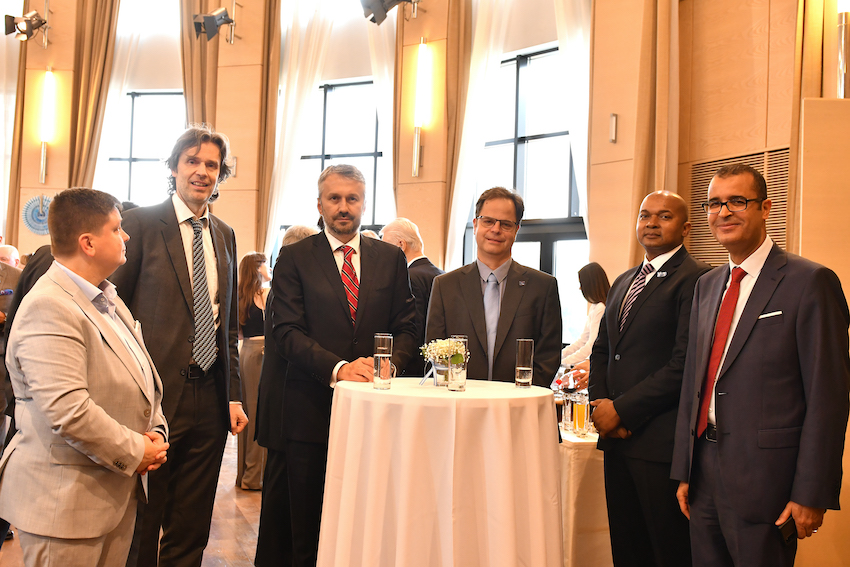
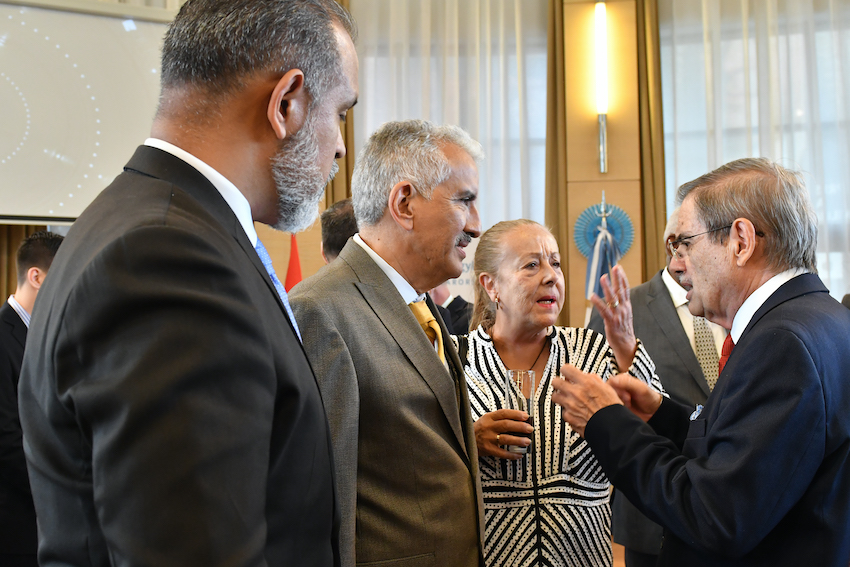
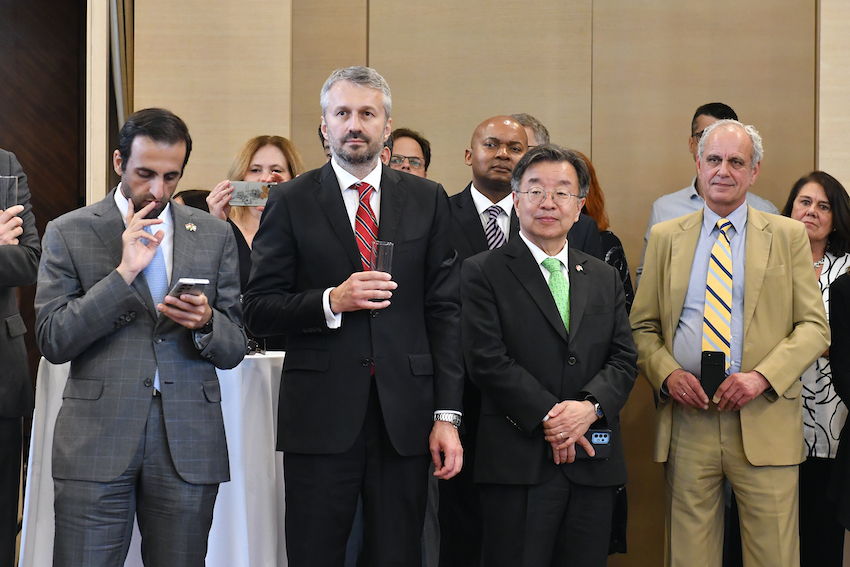

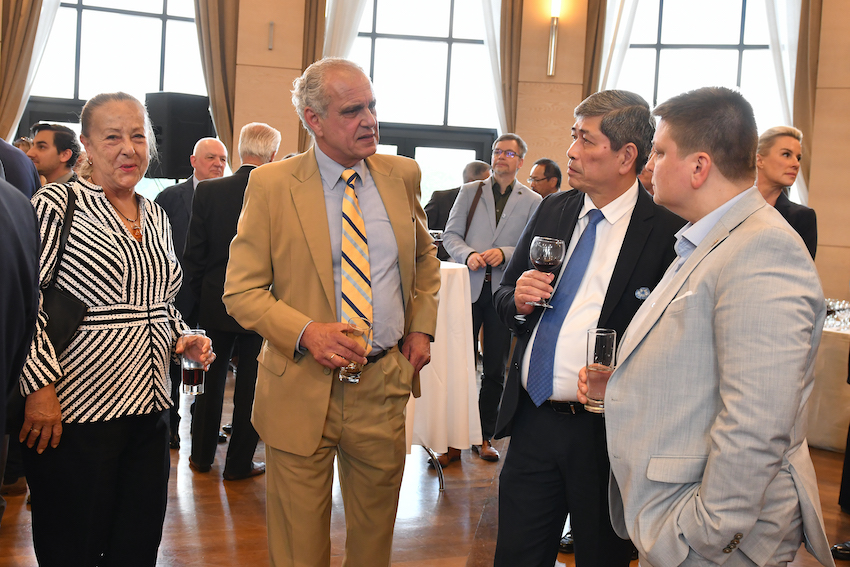
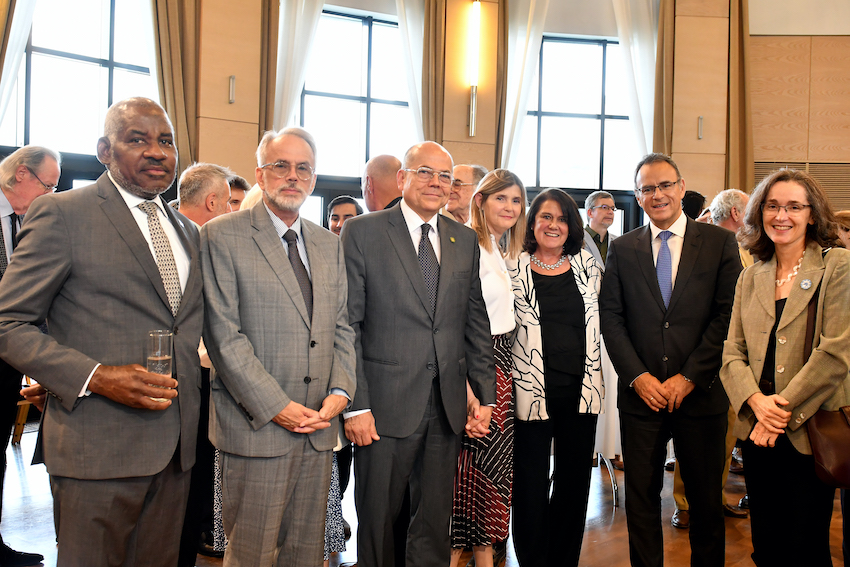
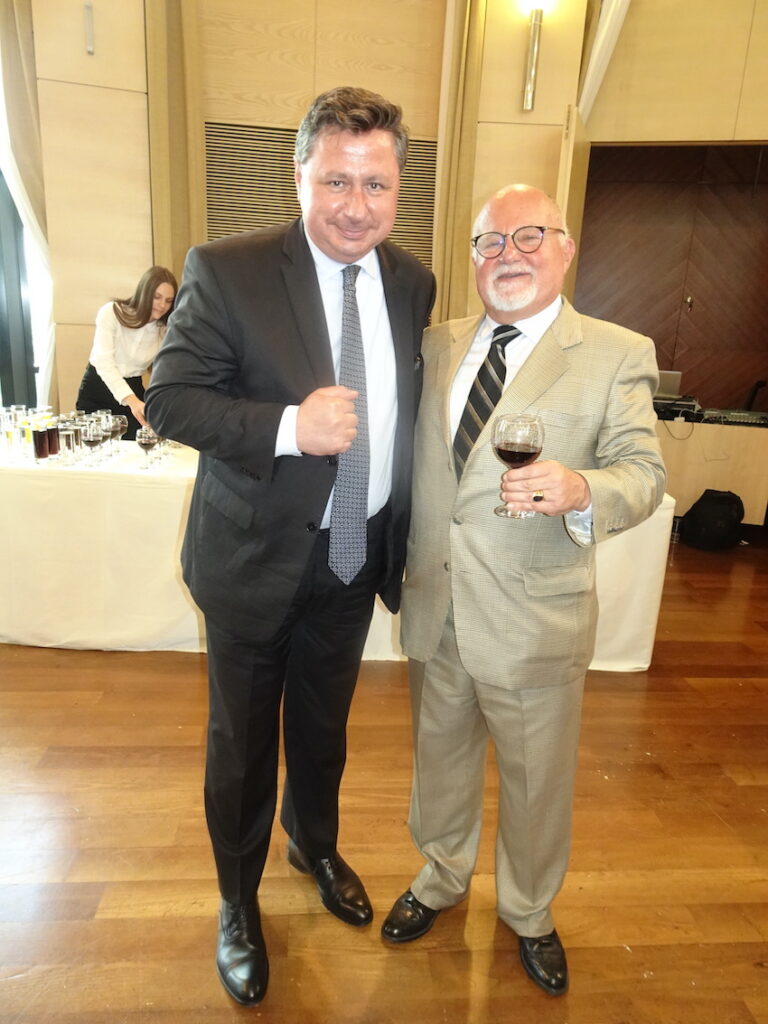
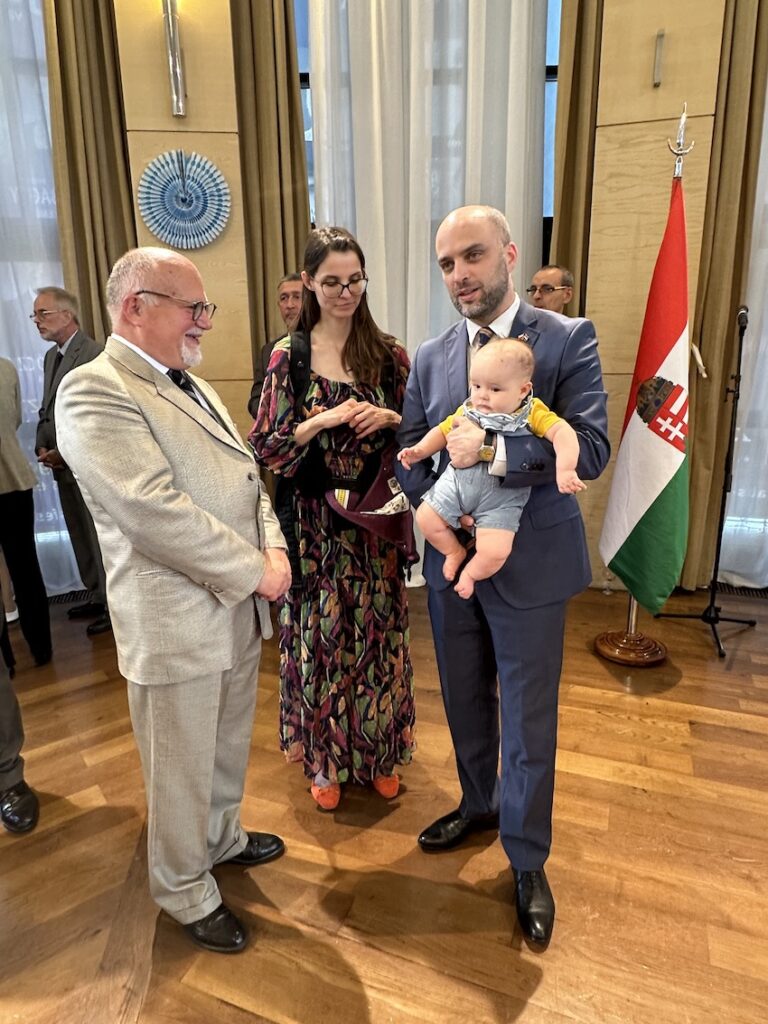
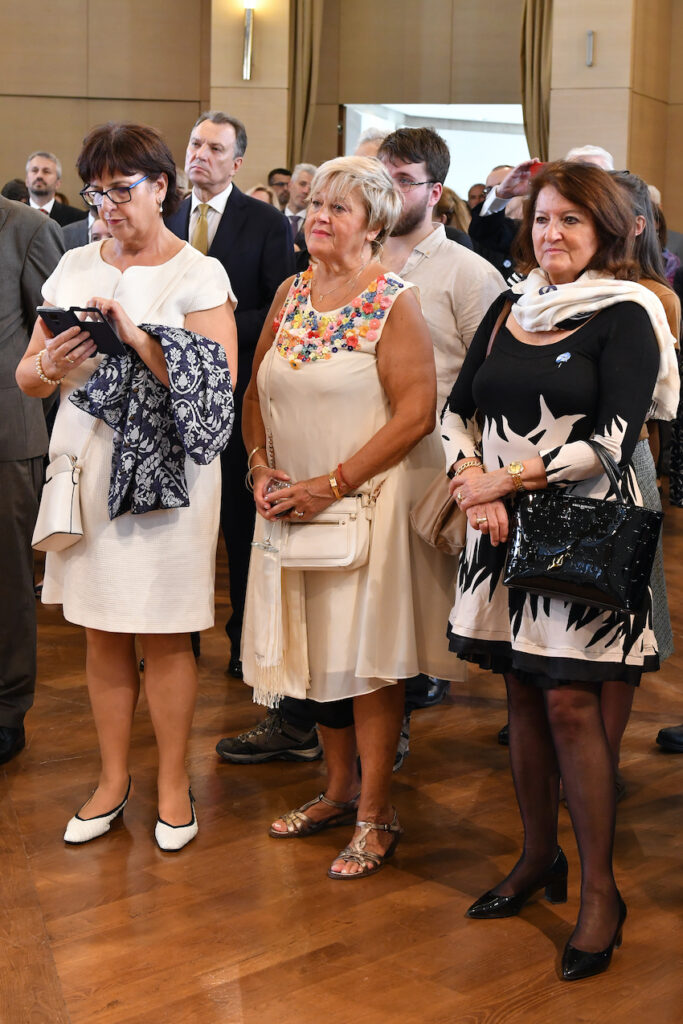
The celebration started with the national anthems of Argentina and Hungary.


It was followed by the remarks of H.E. Hernán María Patiño Mayer, Ambassador of the Republic of Argentina to Hungary, welcoming the guests and sharing his thoughts with the audience:
“I would like to begin by thanking everyone who came to celebrate with us the 213th anniversary of the May Revolution. I would also like to thank my fellow Ambassadors, the representatives of the Hungarian Ministry of Foreign Affairs, and especially MP Mónika Bartos, Chair of Hungarian–Latin-American Friendship Group of the Hungarian National Assembly, who has kindly agreed to address us at this celebration.

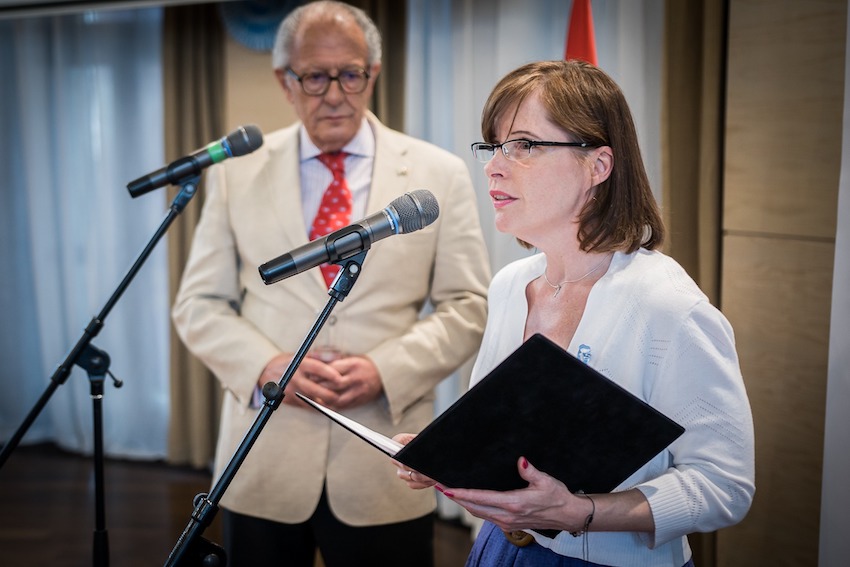
I would also like to thank all Hungarians who have emigrated to Argentina since the 19th century and now feel part of our people. To these migrants, we also say thank you from here! Thank you for all you have done to build the cultural mix that has allowed Argentina to be called as a melting pot of races.

This year also marks the 40th anniversary of the restoration of democracy in Argentina. We all remember that date and we also remember President Raúl Alfonsín, who decided to launch a historic process without precedent in the world: the trial of the military commanders responsible for a genocidal dictatorship and the kidnapping, torture, murder and disappearance of thousands of women, men and children. These trials are ongoing and those convicted have been convicted by the Argentine judicial system with absolute respect for the norms and guarantees of our National Constitution.
The madness of war. I make express reference to this because, once again, exclusionary nationalism, closed in on itself, has made us experience a war that we thought impossible here in Europe, given the tragedies suffered during the last century and the millions of dead that littered its territory. Madness has returned with prognosis as unpredictable as it is catastrophic.
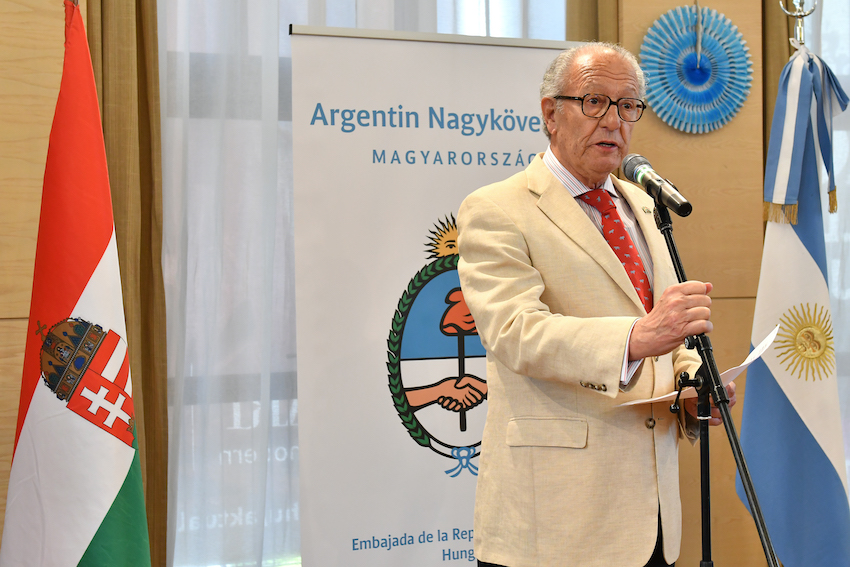
I would like to recall the words that Pope Francis addressed to us a few weeks ago during his historic visit to Budapest:
‘At this historical juncture, Europe is crucial because, thanks to its history, it represents the memory of humanity; in this sense, it is called to take up its proper role, which is to unite those far apart, to welcome other peoples and to refuse to consider anyone an eternal enemy. It is therefore vital to recover the European spirit: the excitement and vision of its founders, who were statesmen able to look beyond their own times, beyond national boundaries and immediate needs, and to generate forms of diplomacy capable of pursuing unity, not aggravating divisions. At the present time, those dangers are many; but I ask myself, thinking not least of war-torn Ukraine, where are creative efforts for peace?’
Will international diplomacy recognize its impotence, and that of the states we represent in the face of the unchecked power of the death traffickers? Are we going to resign ourselves to witnessing once again the failure, perhaps definitive, of international policy to build and guarantee peace? Let us hope not. Finally, and most especially, I salute the Hungarian communities who have contributed so much to their adopted homeland.
As Pope Francis also teaches us: ‘we will never allow ourselves to be robbed of hope’. I am sure that when we leave behind the heavy inheritance of the previous government, we will be able to rebuild a socially Just, economically Free and politically Sovereign Homeland, in fraternal union with the rest of the nations of the Mestizo America.”
The formal part of the event was followed by a reception, offering traditional Argentine specialities and the emblematic Malbec wine.
The invitees were delighted by the spectacular performance of the world champion tango dancers: MrsAndrea Serban and Mr Endre Szeghalmi from Tango Libre Budapest.

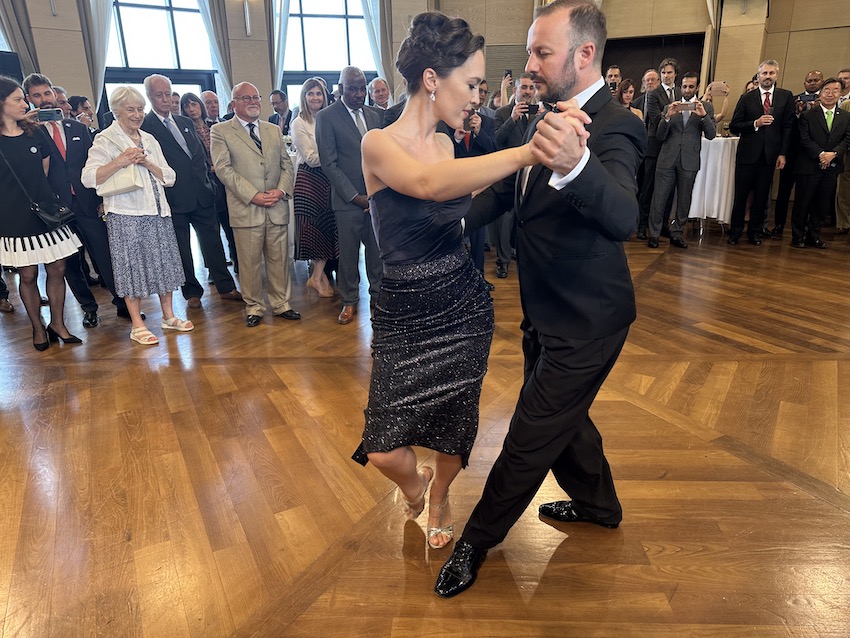
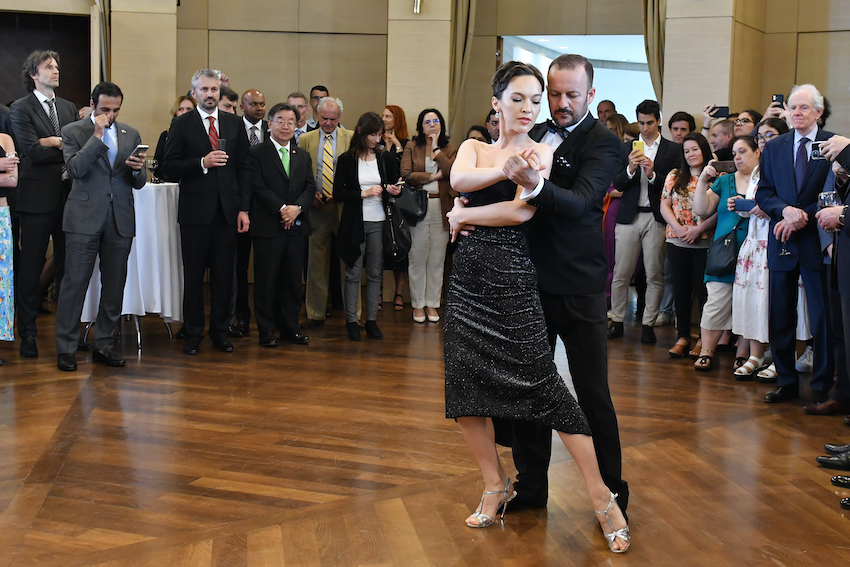

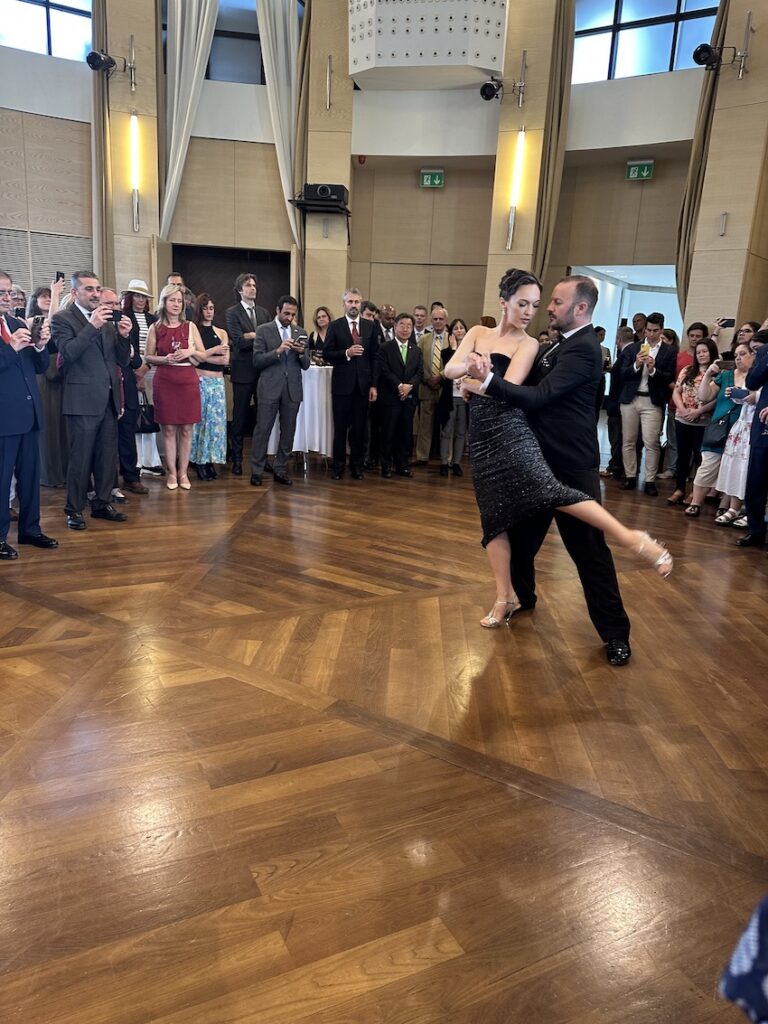


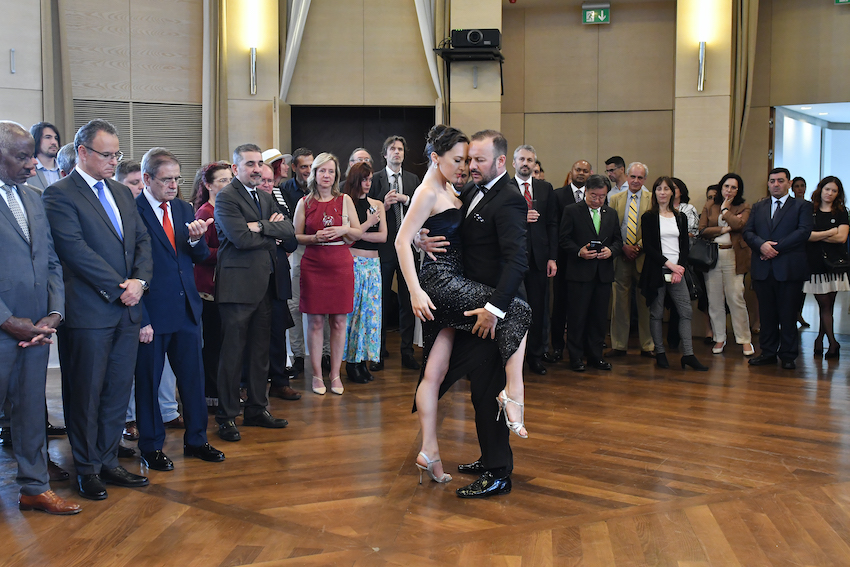
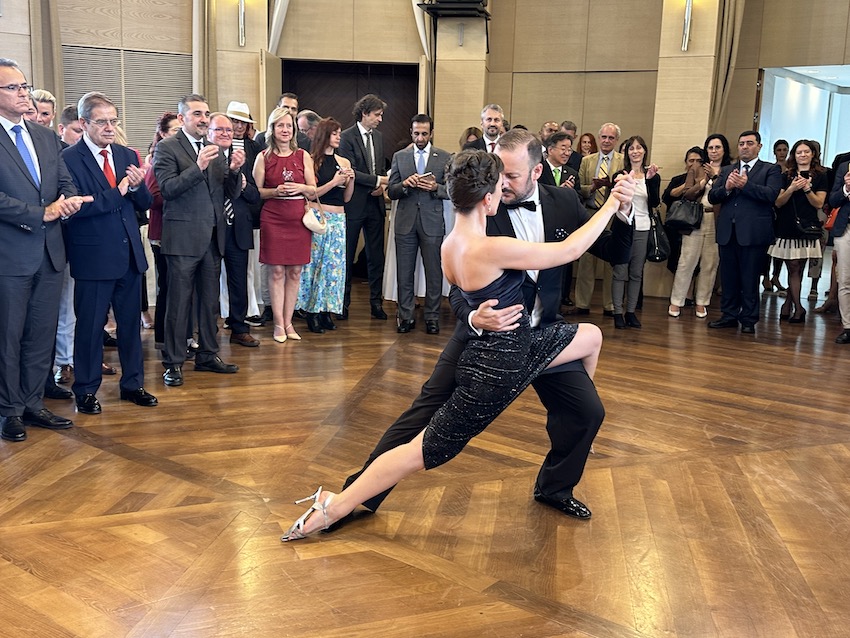
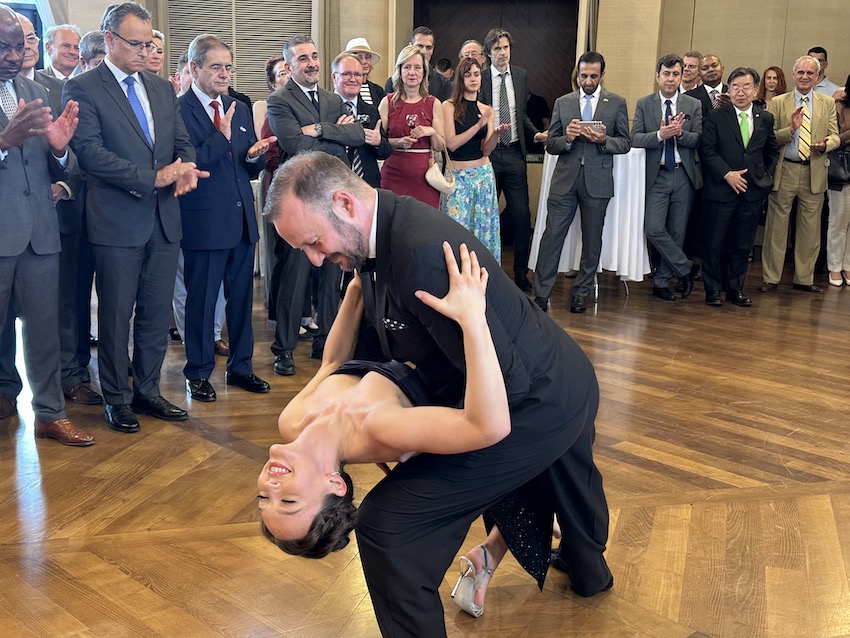
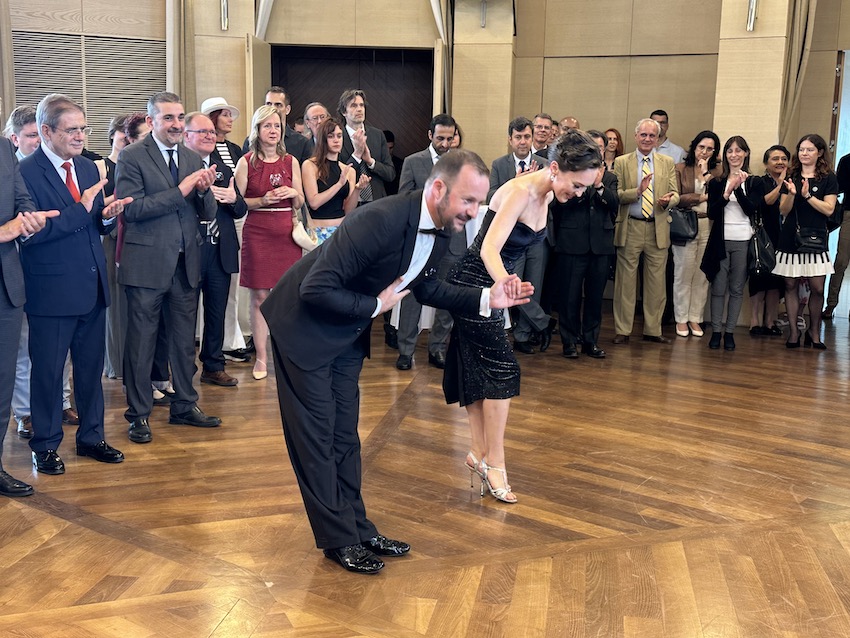
Argentine culture is the result of mixing traditions of several generations of people from various countries, who had no common roots or memories. The tango was the most remarkable expression of this cultural fusion. It represents an inspiration for other forms of expression such as poetry, and although it was born on the streets of Buenos Aires at the end of the 19th century with large European immigration, the tango managed to become a national symbol and part of Argentinians’ cultural identity.
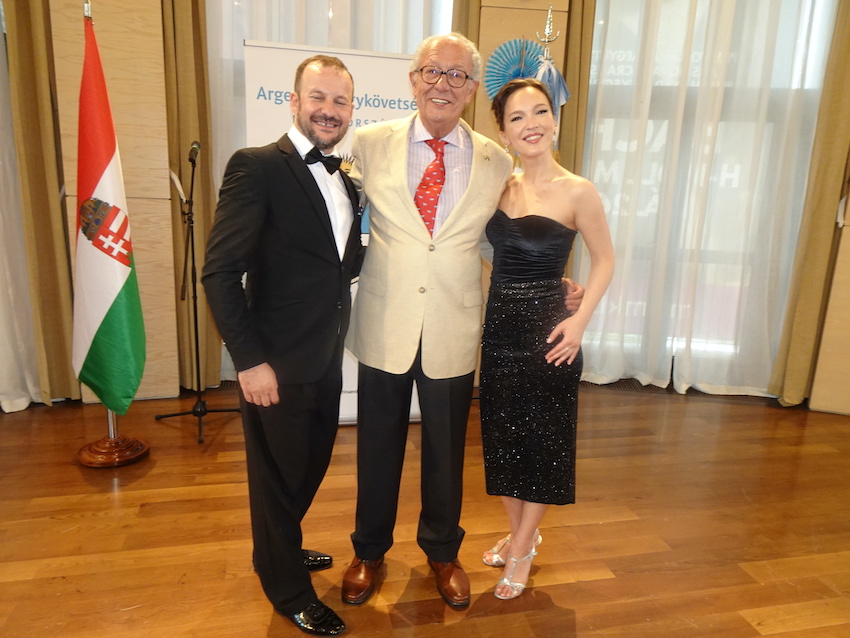
Source: Embassy of Argentina in Budapest,
Argentina.gob.ar

